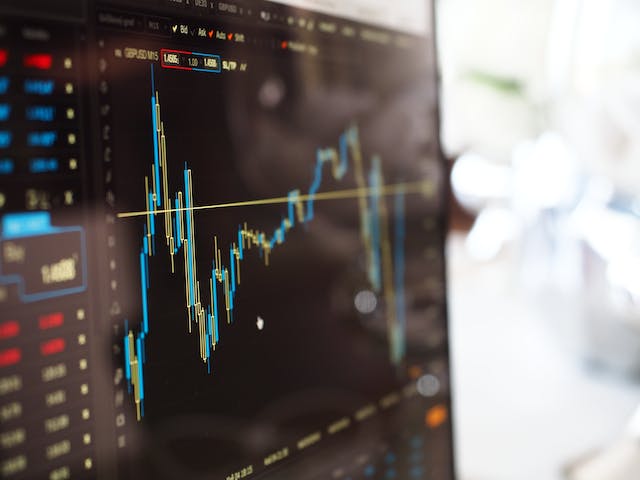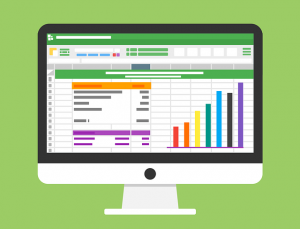
Constantly seeking avenues for growth and financial success, individuals and start-ups navigate the dynamic landscape of entrepreneurship. One avenue that has gained significant traction is forex trading, and in this realm, brokers play a crucial role. Among these brokers, Exness (check out exness.broker-breakdown.com to learn more) stands out as a facilitator of start-up growth, providing a platform that empowers entrepreneurs in their journey towards financial prosperity.
Forex trading, the exchange of currencies in the global market, has evolved into a viable business option for entrepreneurs. The appeal lies in its accessibility, flexibility, and potential for substantial returns. However, navigating the complexities of the forex market requires a reliable partner, and this is where brokers like Exness come into play.
Exness, as a broker, offers a comprehensive platform that caters to the diverse needs of start-ups venturing into forex trading. One of the primary advantages that entrepreneurs can leverage is the accessibility of Exness’s platform. With a user-friendly interface and seamless navigation, even those new to forex trading can quickly grasp the essentials and commence their entrepreneurial journey.
For start-ups, capital is a critical factor, and Exness recognizes this reality. The broker provides competitive leverage, allowing entrepreneurs to control larger positions with a relatively small amount of capital. This leverage becomes a powerful tool for start-ups looking to maximize their trading potential and, subsequently, their profitability.
Risk management is a paramount consideration for any business, and Exness ensures that start-ups in the forex realm have the tools to navigate this aspect effectively. The broker’s risk management features, including stop-loss orders and real-time monitoring, empower entrepreneurs to set boundaries and safeguard their capital. This ability to manage risk is essential for start-ups aiming for sustained growth in the forex market.
Furthermore, Exness distinguishes itself through its commitment to transparency. In the forex business, where trust is a crucial element, Exness goes the extra mile to provide public tick history. This feature allows entrepreneurs to download detailed tick history directly from the website, ensuring transparency in pricing and reinforcing the trust between the broker and its clients.
ALSO READ: Bitcoin Trading Strategies: How Startups Can Leverage Cryptocurrency for Business Growth
Regulation is another key facet of Exness’s commitment to a secure trading environment. Holding multiple trading licenses in different jurisdictions, Exness provides an extra layer of trust for start-ups. While not all licenses may be applicable to every international trader, the diverse range of regulatory compliance underscores Exness’s commitment to operating within established standards.
In terms of financial security, Exness adopts a prudent approach through accounts segregation. Keeping client funds separate from its own mitigates over-exposure risks. This becomes a crucial element in risk management for start-ups, ensuring that even in extreme scenarios, the potential loss is limited to the profits of active trades and not the entire deposit.
The role of technology in forex trading cannot be understated, and Exness recognizes the importance of swift and efficient order processing. The broker employs cutting-edge technology to execute trades quickly, providing start-ups with the agility needed to capitalize on rapid market movements. Coupled with robust customer support available 24/7, entrepreneurs on the Exness platform have access to timely assistance for informed decision-making.
Conclusion
Forex trading has emerged as a viable business option for start-ups, and Exness serves as a reliable partner in this entrepreneurial journey. With a commitment to accessibility, risk management, transparency, and technological efficiency, Exness empowers start-ups to leverage the potential of the forex market for sustained growth and financial success. Entrepreneurs, armed with the right tools and a trusted broker, can navigate the complexities of forex trading and chart a course towards entrepreneurial triumph.

 The enormous growth and progress in the global forex market have appealed to and interested both investors and traders. With plenty of available currencies as well as trade volumes that can reach trillions of dollars, the foreign exchange markets present traders and investors a convenient way to make the most of the natural leverage and volatility so as to earn decent returns.
The enormous growth and progress in the global forex market have appealed to and interested both investors and traders. With plenty of available currencies as well as trade volumes that can reach trillions of dollars, the foreign exchange markets present traders and investors a convenient way to make the most of the natural leverage and volatility so as to earn decent returns. Choose a Regulated and Trusted Forex Broker
Choose a Regulated and Trusted Forex Broker Opening and Running the Account
Opening and Running the Account
